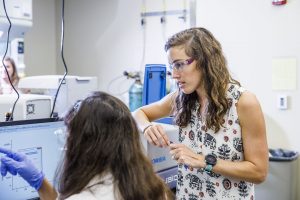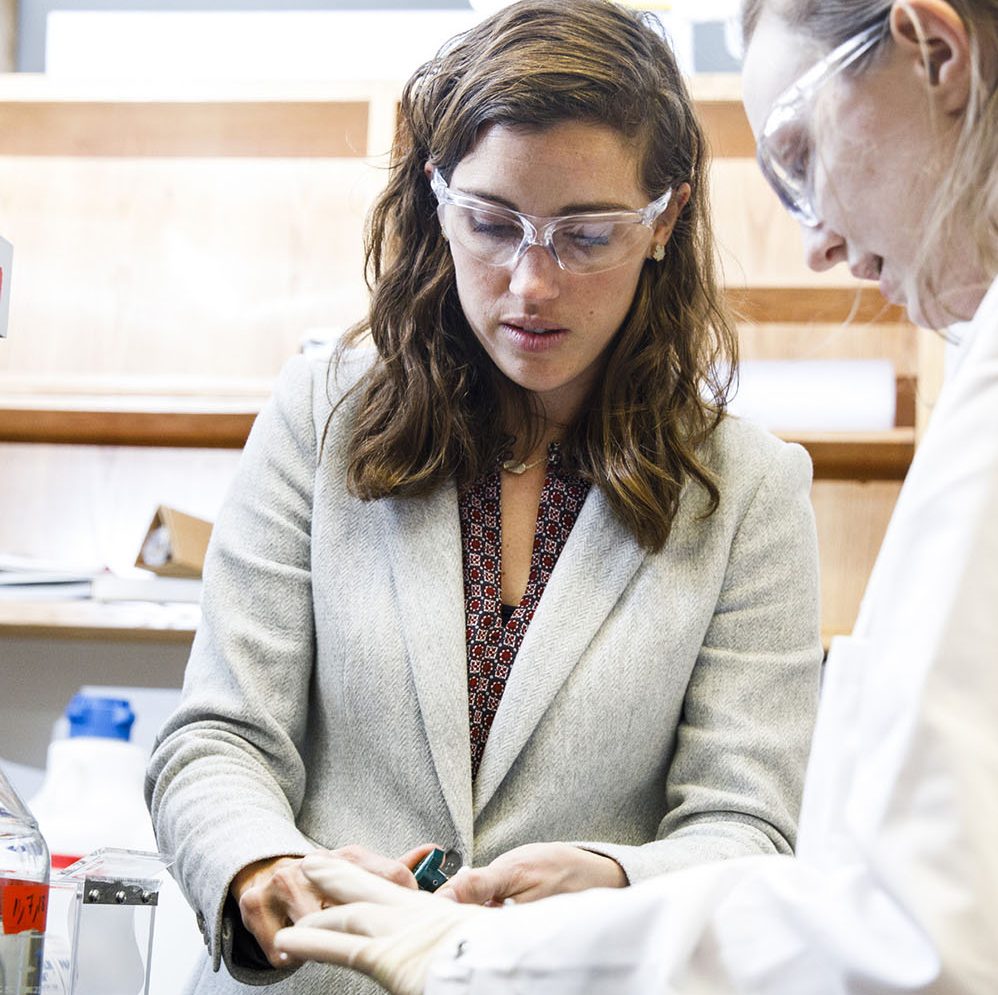From University of Alabama track star to assistant professor of an accredited civil, construction and environmental engineering program, Dr. Leigh Gilmore Terry has been part of the Alabama family since the beginning of her collegiate career.
“I’m from Alabama, and it’s always a dream to work at the university in which you’re from,” Terry said. “It is definitely a dream to come back and work at UA.”
Starting her career near her hometown of Grove Hill, Alabama, gives her the chance to be close to her family and to raise her infant son in her home state. “
There are a lot of important things in this world, and I think family is at the top of that list,” Terry said.
Terry earned her Bachelor of Science degree in civil engineering with a minor in environmental engineering from the University in 2012. Before returning to UA, Terry received her master’s and doctoral degrees in environmental engineering from the University of Colorado, Boulder. Academia and teaching were always a part of the plan for Terry.
“I love the academia world,” Terry said. “I love the search for knowledge, solving problems with out-of-the box solutions, research and the teaching component of academia.”
Since her junior year of high school when she participated in the Student Introduction to Engineering program, or SITE, Terry knew she wanted to be involved in engineering.
SITE is a summer engineering program for high school students hosted by The University of Alabama College of Engineering. This program taught Terry that a career in engineering combines her love for math, science and problem solving.

“In engineering, you use your science and math knowledge and apply those skills to real world applications. I enjoy the application of my scientific background in engineering,” Terry said.
Terry credits her varsity track career at Alabama for teaching her dedication and time management skills that transfer to her professional career today.
“Managing your time well is a skill that I use daily as I am pulled in different directions with research, teaching, advising, writing proposals and working in the lab. Perseverance keeps me submitting those proposals when the acceptance rates are currently low and competition currently high,” Terry said.
By attending another university for her master’s and doctorate degrees, Terry said she was able to research under other professors, learn new skills to bring to UA as a professor and be more of an asset to students.
Terry believes the UA College of Engineering will benefit from the addition of both an undergraduate environmental engineering program and an architectural engineering program. Both programs became accredited by ABET, the national accrediting agency for engineering and computing programs, in 2018 and are housed in the civil, construction and environmental engineering department.
“Now that UA has an environmental engineering B.S. degree, it’s advantageous for students to attend the Capstone. It will attract students from across the country because they can get an ABET accredited degree whereas [before] if they wanted an environmental engineering degree, they might not have chosen UA,” Terry said.

The ABET accreditation process for the environmental and architectural engineering programs started in January 2017, and the two programs officially became accredited in October 2018. The multi-step process included comprehensive reports of all aspects of the programs as well as official site visits.
ABET accreditation requires all students following an engineering degree path to have the same high standard of success across all accredited institutions. The accreditation of these two programs extends back to 2015 and applies to all environmental and architectural engineering degrees received in that time period.
“To be a credible program in engineering in the U.S., that program must be accredited,” said Dr. Derek Williamson, associate professor of civil, construction and environmental engineering at UA. “In terms of standing and recognition of the degree programs, being ABET accredited is tantamount to being acceptable on a national stage, and for the most part, not being accredited means not being recognized as a viable engineering program.”
With the ABET approval of these two programs, 11 undergraduate degrees in the college are now accredited. In addition, Williamson said The University of Alabama is the only institution in the United States with civil, construction, environmental and architectural engineering degrees all ABET accredited.
